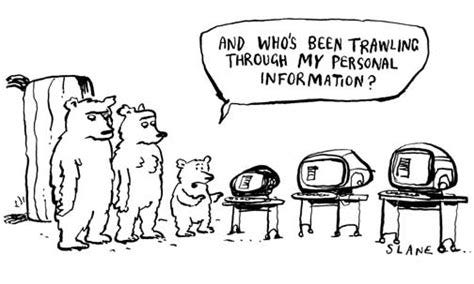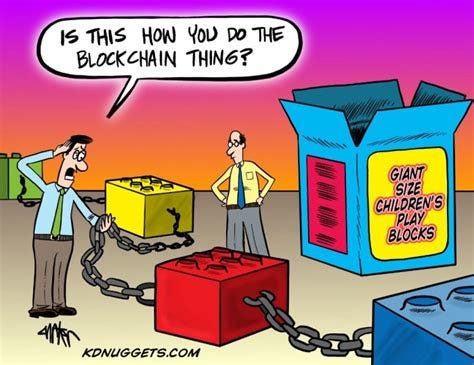Bitcoin is More Credible than Elon. Bitcoin Tech Talk #240
Elon this week has started to criticize Bitcoin and began to ignite speculation about making a competitor out of Dogecoin. His attacks on Bitcoin’s energy use have been debunked many times, but I found this response by Saifedean to be most helpful from an economic perspective to understand why that energy needs to be spent. Jack Mallers also has an incredible tweetstorm about Elon as well.
In this piece, I’m going to explain how he likely got here and what’s likely to happen. As I’ll explain, we’ve seen this all before. There are two fundamental errors here that Elon is making and these are mistakes that a whole host of different people have made in the past.
The first error is that of treating Bitcoin as a technology only. This is generally borne out of hubris, especially from technically-minded people. After all, he’s made a better rocket, a better electric car, and better tunnels. How hard can it be to build a better money? This would be true if money were like mouse traps, where incremental technical improvement is the main criteria for market adoption.
Unfortunately, money is not just a technology that you use now, money requires trust in its ability to hold value in the future. Thus, the feature that gets market adoption is having credible long-term scarcity. This is not a feature you can just bolt onto any money. Credibility is earned through historical record, not built like a battery or a tunnel.
Consider this thought experiment. The US dollar could add all kinds of technical upgrades, such as fast settlement times, privacy and other things. Would that suddenly make people want to store value in the dollar long-term? Probably not because the Fed will continue expanding the money supply. The reason why people don’t hold dollars is not because of a lack of features, it’s because of a lack of trust.
In other words, there is a credibility gap that has to be bridged for a successful long-term money. This is especially true when the money is brand new. The question that any new money has to answer is, how can it be trusted to stay scarce going forward? Bitcoin does this through removing centralization and giving every user the ability to verify, not trust.
A hacky way to bridge this credibility gap is what leads to the second error. Many attempt to use their own trustworthiness to overcome the credibility gap. The hope is that their own celebrity or track record for success would be enough for the currency that they endorse to become more credible than Bitcoin. Indeed, the entire altcoin space is driven by such personalities. Two coins can have the exact same technical features, but one ends up with a higher market cap because the creator of that coin is better known or has a better reputation. Whitepapers and marketing materials are full of the biographies of the founders of the currency, showing their degrees, positions, achievements and so on.
Yet, as the past 10 years have shown, money requires a different kind of credibility because it has to last over time. Personal endorsements only go so far, and depend too much on the person. Money has to last past the life of the person endorsing it. Elon has clearly achieved a lot of things, but even he can’t tell you how Tesla would be run after he dies. That’s not because he’s malicious or a liar, but because he’s like all mortals. He can only make guarantees about himself.
Money requires a different kind of credibility than the endorsement of a person. Indeed, assurances by people are nearly useless because the future is so uncertain. The people that make such promises can change their minds and the governance can shift to others who don’t share the same vision. Personal guarantees, in other words, are much harder to trust over the long-term.
Bitcoin has bridged this credibility gap the only way that it can be bridged: through time. Through 12 years of decentralized existence the 21 million limit has been kept steady and the soundness of the money continues to be verified by a network of decentralized nodes to a world that’s been very skeptical. Altcoiners, such as Elon, Roger Ver, Vitalik Buterin, Charles Hodgekinson, Justin Sun and many, many others, rely on their own personal credibility to bridge the gap. As the market has shown, this is not nearly enough to make up for all the uncertainties of the future.
Elon Musk is trying to use his immense celebrity and reputation to create a money centralized around him. Centralization, unfortunately, is very fragile over time and dependent on the right people staying in charge. A decentralized system is way more robust and thus, easier to trust over the long-term.
Unfortunately, the people that are newer don’t understand this long-term dynamic and have been betting on him instead. Sadly, they’ll learn the lesson that every altcoin has learned, which is that personal credibility is no match for proof over time.
Bitcoin
The last difficulty adjustment period did not activate Taproot and we’re in a new period. Notably, ViaBTC is fully signaling, joining AntPool, F2Pool, FoundryUSA, Slushpool and Poolin. BinancePool, BTC.com, HuobiPool, BTC.top and 1THash have all started partially signalling. Those five pools fully signalling along with the current fully signalling miners would total to about 94% of the network hash rate, which would be over the 90% necessary. The current period likely won’t reach the threshold, so the earliest lock-in is when the next difficulty period ends, which should be around June 10th. Regardless of when the Taproot lock-in happens, as long as it does, Taproot will activate around mid-November.
There was a bit of a dustup a few weeks ago due to Luke-jr’s perceived actions. Many devs claimed that this pull request that set the parameters in Speedy Trial for BIP341 wasn’t merged per the normal BIP process. They claimed Luke was stalling because he didn’t agree with the BIP9 activation method that was being included. As he was the sole maintainer of the BIP repository, this led to anger by those that wanted the BIP updated. Luke proposed in this post to the mailing list for another maintainer and has subsequently gone forth, so Kalle Alm will likely soon be a BIP maintainer. There’s a good deal of debate as to whether the BIP process is something that will be used in the future. As lots of different organizations are publishing their own standards, there’s some merit to not having a single repository for improvement proposals. It’s a bit sad to see that the current soft fork is causing this much consternation.
Blockchain Commons has an initiative to promote some standardization for communication in airgaps. The idea here is to have a standard way of communicating between computers via QR codes so as to reduce the risk of any sort of malware or infections. The standard ought to be very useful for any sort of cold wallet or offline storage of private keys and enhances security. My hope is that more tooling around these ideas become available to devs in the near future.
Lightning
Anthony Ronning has an overview of all the privacy issues in Lightning. The post is very thorough and goes through the various ways in which an attacker may compromise some security, including IP address, node identifiers, UTXOs being used, what can be known about private channels and so on. Much like using Bitcoin for privacy, using Lightning in a private way requires work and this is a great post to get started on preserving your own Lightning Node privacy.
Blockstream compares and contrasts the differences between Liquid and Lightning. As they note, they are built for different use cases and the tradeoffs are much easier to understand after reading this post. Liquid allows for strong privacy as the amounts or even the asset being traded is confidential, while some trust is required of the Liquid federation. Lightning requires little trust, but as the previous story shows, privacy is harder. I’m still pretty surprised Liquid hasn’t gained more traction, but then again, real markets take a while to develop. At least ones that aren’t scammy.
Economics, Engineering, Etc.
Francis Pouliot has perhaps the best response to Elon’s ridiculousness. As he points out, Elon’s argument is like complaining about gravity. It’s a fixed law and Elon unfortunately has an inflated enough ego to think that such a thing can be changed by his force of will. I believe this to be the right framing of the issue, despite the fact that there are plenty of mistakes in Elon’s argument. To fall into Elon’s frame, which is to say that the energy usage is itself a problem is to concede an important point.
Another four wonderful articles from Bitcoin Magazine this week and the first one is Alex Gladstein who interviews people from Africa to show how much financial privilege we have in the west. As he points out, the problems Bitcoin solves in those places are things we take for granted and the concerns of the Mungers and Buffetts of the world amount to first-world problems. In other words, they miss so much of Bitcoin’s value becaue they are so privileged. The monetary imperialism of the dollar is underrated as a problem in the west, but is obvious to most of the rest of the world.
Hermann Vivian argues that personal responsibility is the real fruit of Bitcoin. This is easy to miss because we’re so used to outsourcing custody and thus responsibility of things we supposedly own. In a sense, Bitcoin brings us back to becoming more independent and becoming a society of people that are more self-reliant. Indeed, centralization of responsibility makes for too many irresponsible people leading to a less creation and more destruction and Bitcoin reverses this trend.
Another fascinating article is about an anthropologist’s perspective on Bitcoin. The article contrasts anthropologists with economists, the former of which describe and observe while the latter prescribe and dictate. Apparently, many anthropologists are studying the Bitcoin community in the same way as they would any particular culture and have observed some insights about the role of the community in Bitcoin in particular. Worth reading to see how actual academics (not fake ones like economists) approach analyzing the Bitcoin community.
The final article is by Aaron Segal who sees Bitcoin as an entropy reducer. As he sees it, prices are the most important information that needs to freely flow for an efficient society and the money we use is how we measure that. The better the money, the less uncertainty or entropy there is in the market, allowing more people to better plan for the future. The article is great if you’re into physics and information theory as the article makes use of some pretty heady concepts to make this argument.
Quick Hits
This takedown of quantum computing was very thorough.
BitMex research has a nice economic analysis of Ethereum’s centralized attempt at lowering their massive transaction fees.
Arthur Hayes talks about fear in the crazy markets we’re seeing now.
Microsoft has stopped its Azure blockchain offering.
An altcoin managed to get a pretty high market cap by sending a bunch of its premine to Vitalik unsolicited.
Events
I am going to be at Bitcoin 2021 June 4-5. I will also be at The Bitcoin Standard conference on August 12-14 in Mexico.
The Programming Blockchain seminar is fast approaching for June 1-2 in Miami. I will be raising rates again tomorrow (May 18, 2021). I will also announce scholarships then. There will be another seminar on August 10-11 in Mexico. This is a 2-day seminar for programmers to learn about Bitcoin. You can apply here. I also have a few scholarships available for those that can’t afford it.
Podcasts, Etc.
On this week’s Bitcoin Fixes This, I talked to NVK about hardware. We talked about tinkering, manufacturing and craftsmanship. He had some great insight about how China has gained the lead in manufacturing and why it’s not likely to give it up.
As usual, I read through last week’s newsletter on Twitter Spaces which you can find here. I was on Tone’s show to talk about Elon, Tether and the Indy500 car. I was also on Electric Soil podcast to talk Bitcoin.
I was on Faith Driven Investor and Real Vision Finance to talk about the new book:
Unchained Capital is now a sponsor of this newsletter. I recently joined as an advisor. I know the team and am excited about what they’re building. If you need multisig, collaborative custody or bitcoin native financial services, learn more here.
Fiat delenda est.












wonderful, as usual. credibility is earned over time. can't be faked.
Good article Jimmy. Agree that Musk lacks knowledge on BTC principles